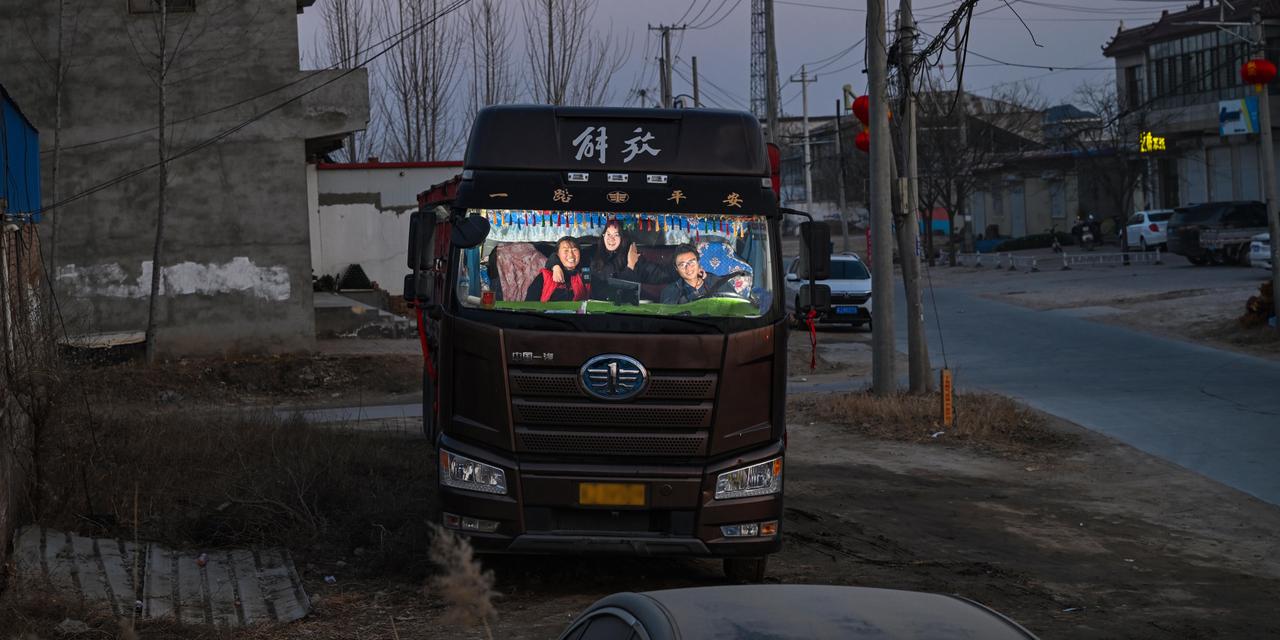


Living, eating and sleeping on the road: The grueling life of China's 38 million truck drivers
FeatureNearly 70% of goods are transported across the country by truck, an essential part of the economy. But China's slowdown in growth coincides with a deterioration in working conditions and the rise of digital platforms.
It was already late at night when a red semi-trailer pulled into a rest area on the G25 highway, on the border between Hebei Province and the autonomous municipality of Tianjin. Its headlights revealed two elderly men smoking cigarettes with golden tips. A well-timed honk, and they waved their lighted batons toward the best parking spot. "Save a spot for our friends too, a red truck like ours. They'll arrive in 20 minutes. Thanks for your help, comrades," called out Huo Long.
The man in his 30s climbed down from the truck, followed by his wife, Yun Fang. They strolled to the service station. The shop offers a motley assortment of energy drinks and instant noodles. On a heated counter, lacquered ducks entice the nose, alongside steamed corn cobs and tea eggs simmering in a steel pot. Plastic dinosaurs, AAA batteries and chocolate bars complete the scene. Four women in pajamas take turns keeping the showers, toilets and washing machines clean.
The couple lives and works together. At the moment, their route began in Tongliao, Inner Mongolia, picking up large rolls of aluminum, then delivering them to automotive subcontractor factories in Tangshan, Hebei Province. A stop in Tianjin allowed them to unload part of the cargo at the port area for international delivery. "We drive for five or six days and then go home. We earn between 30,000 and 50,000 yuan [about €3,584 to €5,970] a month, but we have to advance all expenses and, of course, repay this truck, which is only a year old, at a rate of 15,000 yuan a month."
'I'm with him all the time'
You have 84.02% of this article left to read. The rest is for subscribers only.
